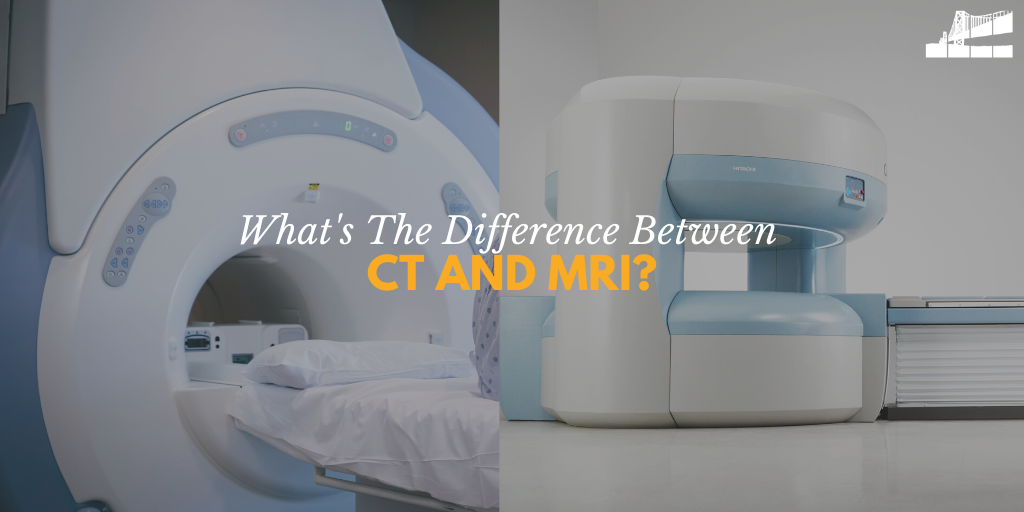It’s one of the most common questions that we hear from patients: “what’s the difference between a CT scan and an MRI Scan?” To most people these procedures can seem pretty similar at first glance (and it’s not surprising - even the machines look the same!) but in reality MRI’s and CT scans are vastly different in the imaging they provide, what they’re used to diagnose, and their overall functionality.
Here are some of the key differences between the two imaging modalities:
Basic Function
CT scans are most commonly used to diagnose bone injuries, problems in the lungs or chest, and to detect tumors. MRI’s, on the other hand, are better suited for examining soft tissue injuries, particularly in the ligaments or tendons. They’re also good for spinal cord injuries and brain tumors.
Level Of Radiation Exposure
One of the biggest benefits of an MRI is the fact that the scan is radiation-free. Because the images are produced from a magnet rather than x-ray technology, patients aren’t at risk of being exposed to any radiation. CT’s, on the other hand, do expose patients to low amounts of radiation.
The average radiation dose of a CT scan can range from 2-10 mSv, which is approximately as much general radiation exposure as someone receives in 3-5 years. Repetitive exposure to higher levels of radiation could potentially lead to cancer, so patients are cautioned against excessive or unnecessary CT scans.
Comfort Level & Scan Time
MRI’s get a bad rep sometimes for the overall patient experience. The scan time is much longer, ranging anywhere from 30 minutes up to two hours, and it’s extremely important for patients not to move while being scanned. Due to the amount of time that patients have to spend with restricted movement inside the machine, anxiety or claustrophobia is common among MRI patients during the procedure.
Although using an open MRI machine instead of a closed one can help soothe patient claustrophobia, there’s nothing that can be done about the amount of time the patient must remain in the machine. This is where CT scans have the upper hand. Most CT scans can usually be completed within 5 minutes, and the actual scan time can be less than 30 seconds, so patients don’t have to worry about claustrophobia.
Shorter scan times also make for less patient discomfort, and slight movement during the scan isn’t as big of a deal when working with CT’s. CT’s are more commonly used in emergency rooms, specifically because they’re a much faster procedure.
Limitations
Although CT scans are undoubtedly more comfortable for patients than MRI’s are, there are some limitations to both procedures. CT’s are great for injuries related to bone, but in some ways they’re not as versatile as MRI’s are. They’re also not as easily equipped for getting multiple angles without moving the patient. While MRI’s have the benefit of being able to produce images in any plane, there are more limitations about what types of patients can have them.
Patients with cardiac pacemakers, tattoos, and metal implants are sometimes unable to undergo MRI scans, although strides are being taken in that regard. Patients can get a CT scan regardless of whether they have metal implants, but anyone who weighs over 450 pounds may not physically fit inside the scanner or may be over the weight limit for the table. MRI’s provide open options that accommodate heavier patients.
While both MRI’s and CT scans are incredibly useful diagnostic imaging procedures, like anything else they both have pros and cons. It’s important to understand that at the end of the day these scans are used diagnostically in very different ways, so your doctor will have to decide if a CT scan or an MRI is the right scan for you based on your specific situation. At BICRAD, we are proud to offer both CT scans and MRI scans at many of our hospital and outpatient imaging locations. If you’re in need of either of these medical imaging scans, contact your local BICRAD location to book an appointment today.

